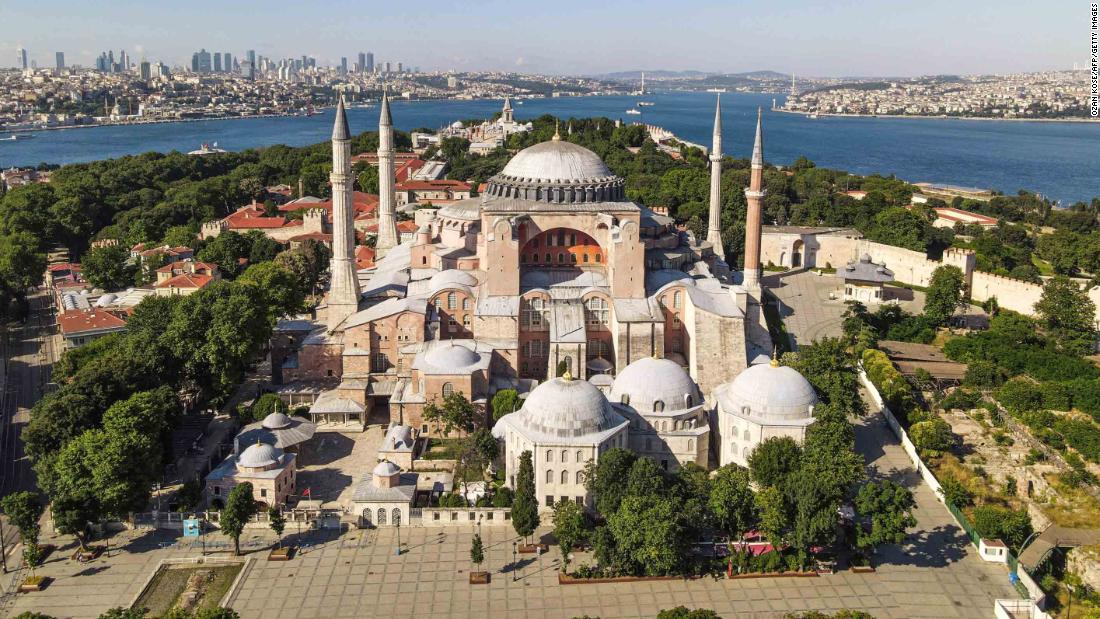
The decision, which involves one of the city’s most important landmarks and a UNESCO World Heritage site, has been criticized by international religious and political leaders, with the UN cultural agency UNESCO among those who expressed concern.
However, the move has not sparked widespread opposition within Turkey.
The Turkish government has tried to reassure skeptics that the works of art and Christian frescoes in the building will not be touched, but that technology will be used to hide them during Friday prayers.
Erdogan has positioned himself as a friend of conservative Islamists in Turkey, distancing the country from those secularist roots.
UNESCO said earlier this month that it “deeply regrets” Turkey’s decision and that the decision was made without the organization receiving prior notification.
Erdogan used a televised speech on July 10 to urge people to abide by the decision, saying that there would be no entry fees anymore as his status as a museum had changed.
“Like all our mosques, its doors will be open to everyone, Muslim or non-Muslim. As the world’s common heritage, Hagia Sophia with her new state will continue to embrace everyone in a more sincere way,” he said.
“We will treat all opinions expressed on the international stage with respect. But the way in which Hagia Sophia will be used lies with the sovereign rights of Turkey. We consider that every movement that goes beyond expressing an opinion is a violation of our sovereignty.”
.